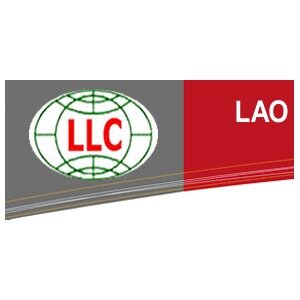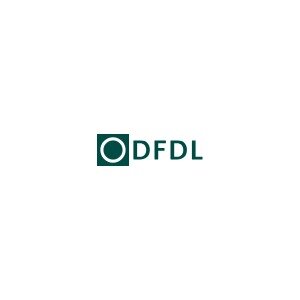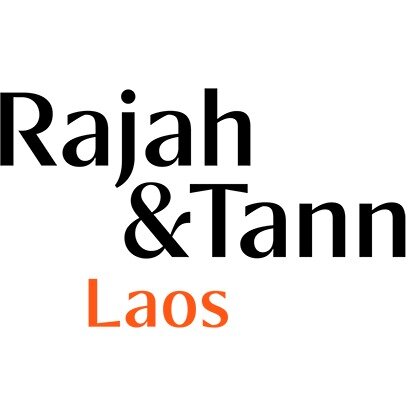Best Tax Increment Financing Lawyers in Laos
Share your needs with us, get contacted by law firms.
Free. Takes 2 min.
Or refine your search by selecting a city:
List of the best lawyers in Laos
About Tax Increment Financing Law in Laos
Tax Increment Financing (TIF) is a public financing method used in regeneration projects and to encourage economic development in specific areas. In Laos, TIF is a relatively new concept, aiming to bolster urban development and infrastructure projects. Through TIF, future increases in property tax revenues are used to subsidize current improvements, which are projected to increase the value of the property. Its implementation requires clear guidelines, and local laws play a crucial role in its administration and success.
Why You May Need a Lawyer
Several scenarios might necessitate legal advice related to TIF in Laos. These include:
- Understanding the complexities of the TIF application process.
- Negotiating terms with local government and development agencies.
- Addressing disputes or litigation involving TIF projects.
- Ensuring compliance with all regulatory requirements and local laws.
- Structuring agreements for developers, financers, and stakeholders.
Engaging a lawyer can help navigate the intricate requirements and ensure your interests are well protected throughout the process.
Local Laws Overview
Key aspects of local laws relevant to TIF in Laos include:
- Regulatory Approvals: Projects must align with national and local development plans and receive approvals from relevant authorities.
- Revenue Allocation: Guidelines dictate how future tax increments should be calculated and allocated to avoid misuse.
- Project Scope: Legal definitions of what constitutes eligible TIF projects to prevent broad or misaligned applications.
- Transparency Requirements: Strict reporting and accountability measures to ensure transparency and public trust.
- Stakeholder Engagement: Legal frameworks mandate the involvement of community stakeholders in the planning and execution stages.
Frequently Asked Questions
What is Tax Increment Financing?
Tax Increment Financing is a public finance tool that uses future property tax increases to fund current improvements designated to boost the economic viability and value of specific areas.
How can TIF benefits be used?
Funds generated through TIF can be used for a variety of purposes, including infrastructure improvements, new development projects, and community-oriented initiatives.
Who is eligible to apply for TIF in Laos?
Eligibility typically includes municipal bodies, private developers, and non-profit organizations working in concert with government authorities to pursue developmental projects.
What is the approval process for a TIF project?
The process involves submitting a detailed plan to local authorities for approval, ensuring alignment with local development goals, and demonstrating potential community benefits.
Are there risks associated with TIF?
Yes, risks might include misestimation of revenue projections, over-reliance on future tax increments, and potential disputes among stakeholders.
Can TIF funds be used for residential projects?
Yes, TIF can fund residential projects, especially in areas aimed at increasing housing opportunities and revitalizing neighborhoods.
How long does it take to implement a TIF project?
The timeline varies based on the project's scope, regulatory approvals, and construction phases. Typically, it may take several years from planning to completion.
What happens if the projected tax increments are not realized?
This scenario can lead to financial shortfalls and requires contingency planning or alternative funding sources to mitigate risks.
Is public consultation required for TIF projects?
Yes, public consultation is a critical component of TIF projects to ensure community engagement and input in decision-making processes.
Can TIF be used alongside other financing methods?
Yes, TIF can be integrated with other financing instruments like bonds and grants to diversify funding sources.
Additional Resources
Consider reaching out to the following for more information and support:
- Department of Planning and Investment: They provide guidance on the regulatory framework for development projects.
- Local Government Authorities: These bodies can provide insights into specific regional incentives and requirements.
- Urban Planning Institutes: Offer research and training related to urban development and finance.
- Legal Associations: Professional bodies for legal practitioners specializing in finance and development law.
Next Steps
If you require legal assistance for Tax Increment Financing in Laos, consider the following steps:
- Identify and consult with legal experts specializing in TIF and developmental finance.
- Prepare documentation and gather relevant data about your project for a thorough legal review.
- Attend informational seminars and workshops offered by local government agencies to better understand TIF mechanisms.
- Stay informed about legislative updates that could impact TIF-related activities through legal bulletins or advisories.
By following these steps, you can gain clarity and confidence in navigating the complexities of TIF law in Laos.
Lawzana helps you find the best lawyers and law firms in Laos through a curated and pre-screened list of qualified legal professionals. Our platform offers rankings and detailed profiles of attorneys and law firms, allowing you to compare based on practice areas, including Tax Increment Financing, experience, and client feedback.
Each profile includes a description of the firm's areas of practice, client reviews, team members and partners, year of establishment, spoken languages, office locations, contact information, social media presence, and any published articles or resources. Most firms on our platform speak English and are experienced in both local and international legal matters.
Get a quote from top-rated law firms in Laos — quickly, securely, and without unnecessary hassle.
Disclaimer:
The information provided on this page is for general informational purposes only and does not constitute legal advice. While we strive to ensure the accuracy and relevance of the content, legal information may change over time, and interpretations of the law can vary. You should always consult with a qualified legal professional for advice specific to your situation.
We disclaim all liability for actions taken or not taken based on the content of this page. If you believe any information is incorrect or outdated, please contact us, and we will review and update it where appropriate.
Browse tax increment financing law firms by city in Laos
Refine your search by selecting a city.












